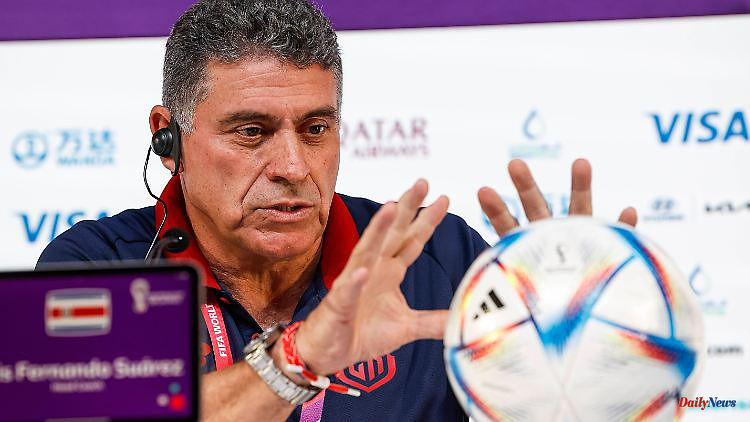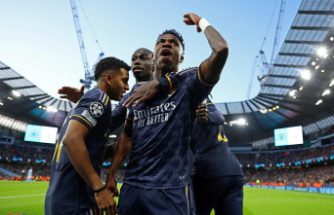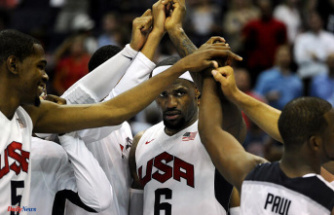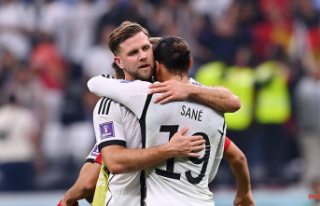The DFB-Elf game against Costa Rica could become one of the biggest debacles in German World Cup history. A win against the Central Americans is a must, otherwise it's back to the German winter after the preliminary round. "That would have enormous consequences," said Costa Rica's likeable coach Suárez.
Luis Fernando Suárez conjures the ball. His hands stroke it. The 62-year-old from Medellín looks into the room. "The ball in front of me," he says, "is not a crystal ball. It's more complicated." But it's all very simple. If Costa Rica, the team that Suárez is currently coaching, wins against Germany in the Bedouin tent in Al-Khor on Thursday, the small Central American country will once again be in the knockout phase of a soccer World Cup. If Germany and Costa Rica draw, the Central Americans have to pray for Spain. They should then beat Japan. That would also be enough.
But of course everyone in Qatar assumes that the DFB team is too big a hurdle for Costa Rica. Especially since the team lost hopelessly in the first game against Spain with 0:7. "It was a long honeymoon," says Suárez. "And suddenly this honeymoon is over. Everything was rosy in qualifying. And then we were beaten. 7-0. I was surprised that we came back." After the bankruptcy at the start, nobody believes in Costa Rica anymore. Except for the Costa Ricans.
"We'll get out of this shit," said veteran defender Celso Borges after the game. Borges is now back in Costa Rica at the age of 34 after wandering around Europe. He's one of those old men for whom this tournament is the last highlight of their career. He's seen a lot. The 1-0 win against Japan was all the more surprising. With the first real shot on goal at this tournament.
"We lost, we won. Emotions ebb and flow," Suárez commented. But with the feelings at least get out of this shit. At this World Cup, completely different people had feelings for which they no longer apologized afterwards. Which could lead to the question of what Gianni Infantino is actually doing today. The FIFA President has almost disappeared and can hardly be seen anymore. Too many feelings maybe.
Gianni Infantino doesn't care about Costa Rica. Their victory against Japan is one that takes the pressure off Germany, who fear a blitz-out at the World Cup against Spain and suddenly play free. But it's also a victory that conjures up memories of past tournaments in Costa Rica. 1990 in Italy, 2014 in Brazil. The big tournaments. The absolute outsiders survived the group stage, first knocking out England and Italy in Brazil, then Greece in the round of 16. Goalkeeper Keylor Navas becomes a world star. And remains so to this day. Against France they fail on penalties. In Italy they defeat Sweden and Scotland, and are only eliminated against Czechoslovakia. At these tournaments, they rise from underdog to ice-cold favorite killers. They love to be underestimated.
"Perhaps this history is now in the genes of the people from Costa Rica," says Suárez. He evokes football again: "If you get to a final, then the people of Costa Rica can do something special. And I'm not just referring to 2014. Costa Rica have achieved a lot." They can achieve a lot more on Thursday in the Al Bayt Stadium, they can shoot the DFB team into one of the worst crises in the association's history. The second preliminary round in a row would trigger fundamental debates in Germany, question everything and everyone and thus of course national coach Hansi Flick. He comments on such speculation only in brief words. He has a contract until 2024, says Flick, who made an effort with Lukas Klostermann from the top of Qatar to the capital.
But in this final against Costa Rica, which has the character of a DFB Cup game between a top Bundesliga team and a second division team with a veritable cup history, the future of German football is also at stake. The public would not forgive the Flick-Elf for anything but a win. Then it could still go out should Japan beat Spain. At least that wouldn't be quite so undignified. Suárez knows the pressure. "If Germany were to leave, it would have enormous consequences. We are responsible for ensuring that this happens. We will work towards the right result," he says, before raising his voice again. Because either way, the game will be special.
For the first time a woman whistles at a World Cup. Frenchwoman Stéphanie Frappart will make history. A holiday for football for the Costa Rica coach. "I admire everything that women achieve," he says: "In this sexist sport, it's very difficult for a woman to get here. It's a positive step for football. Football is for everyone. Football is a democratic sport It's a democratic step that a referee is now refereeing the game."
Then Suárez summons the ball one last time. Sometimes it's not all that complicated. Sometimes you just have to say it.












